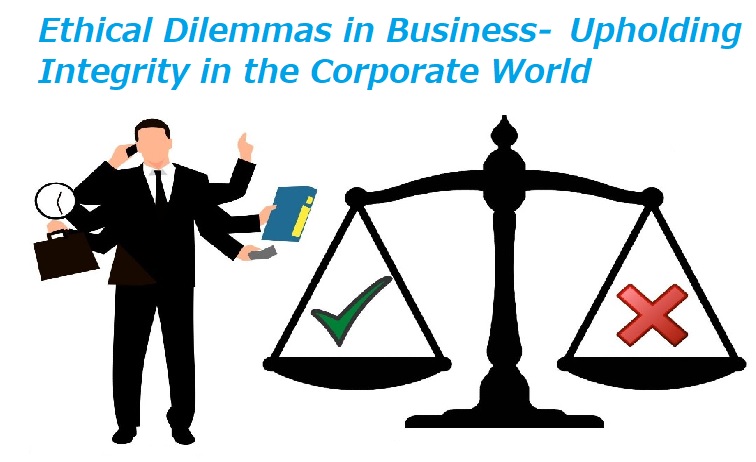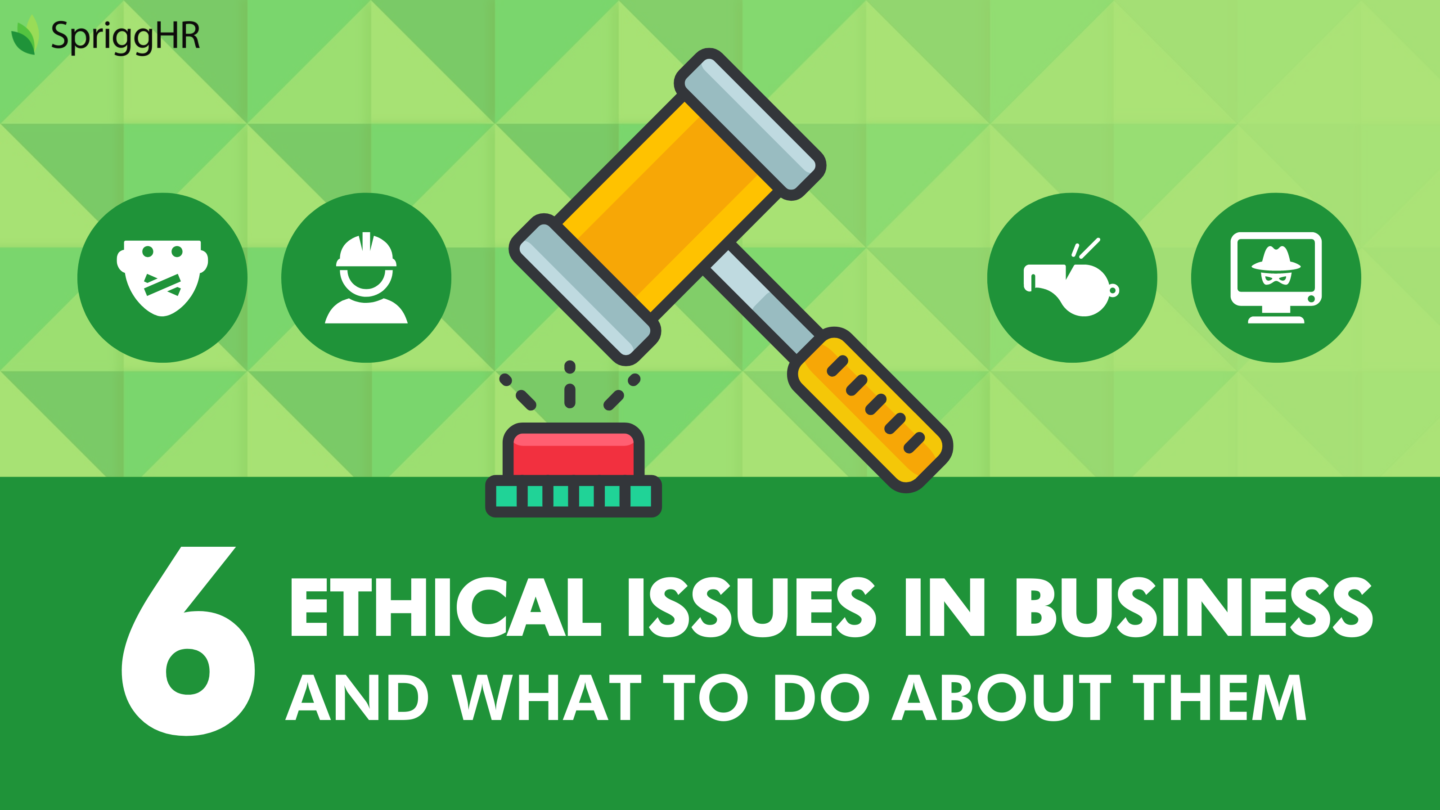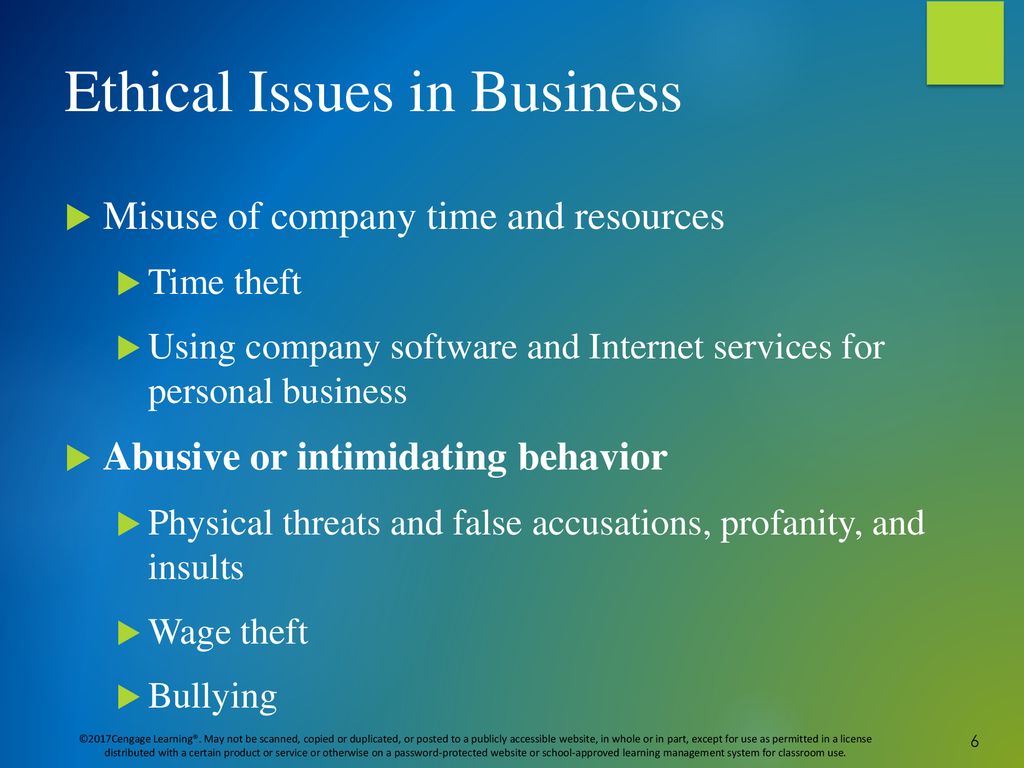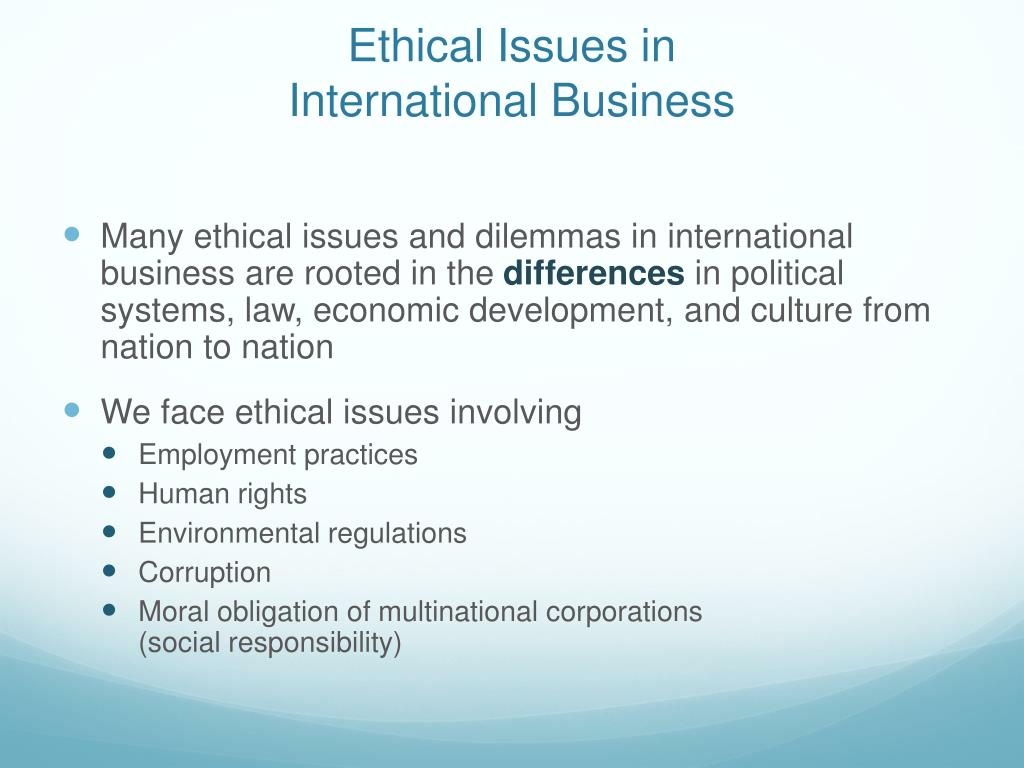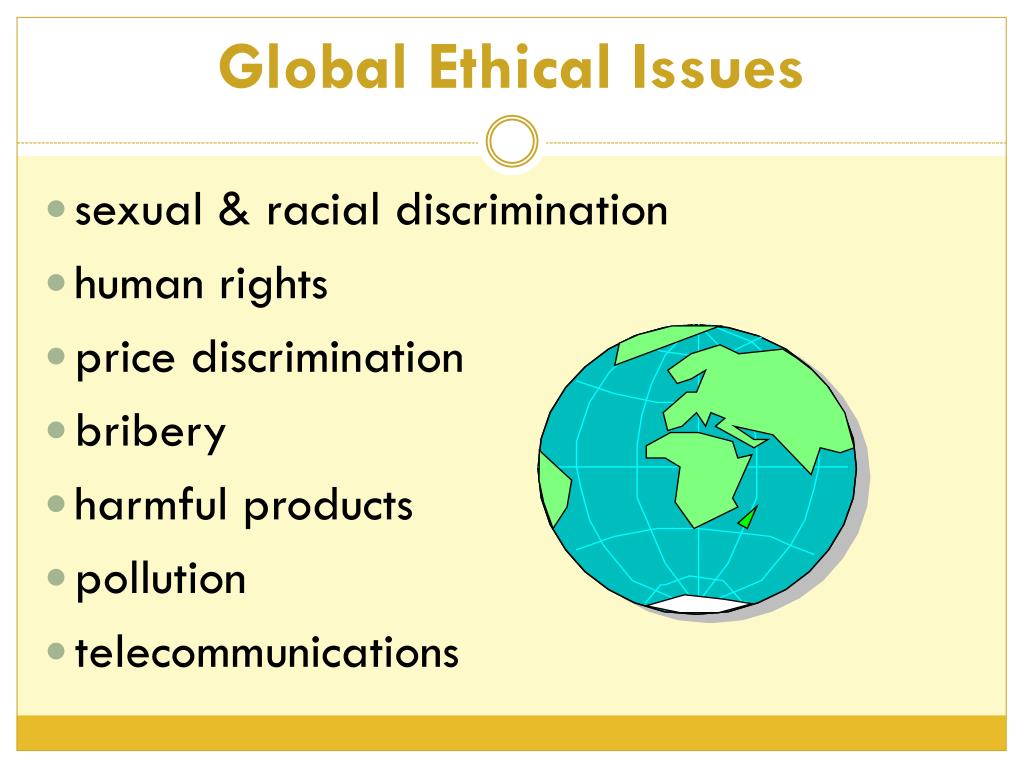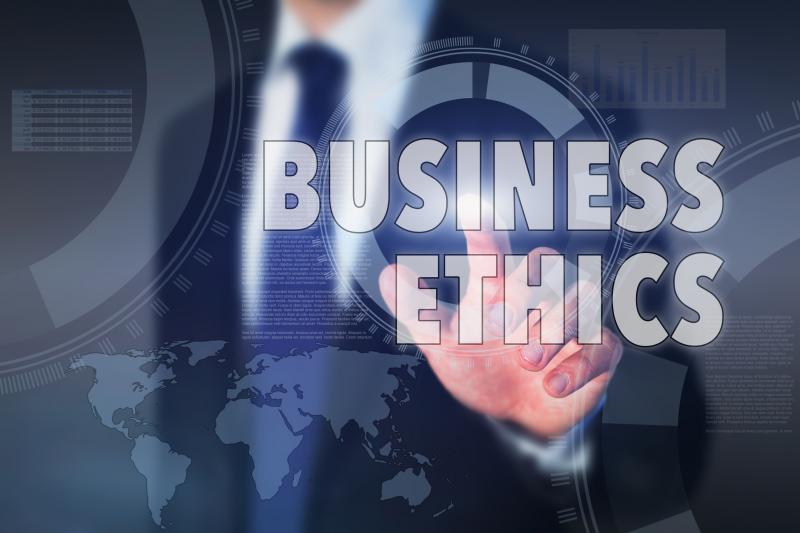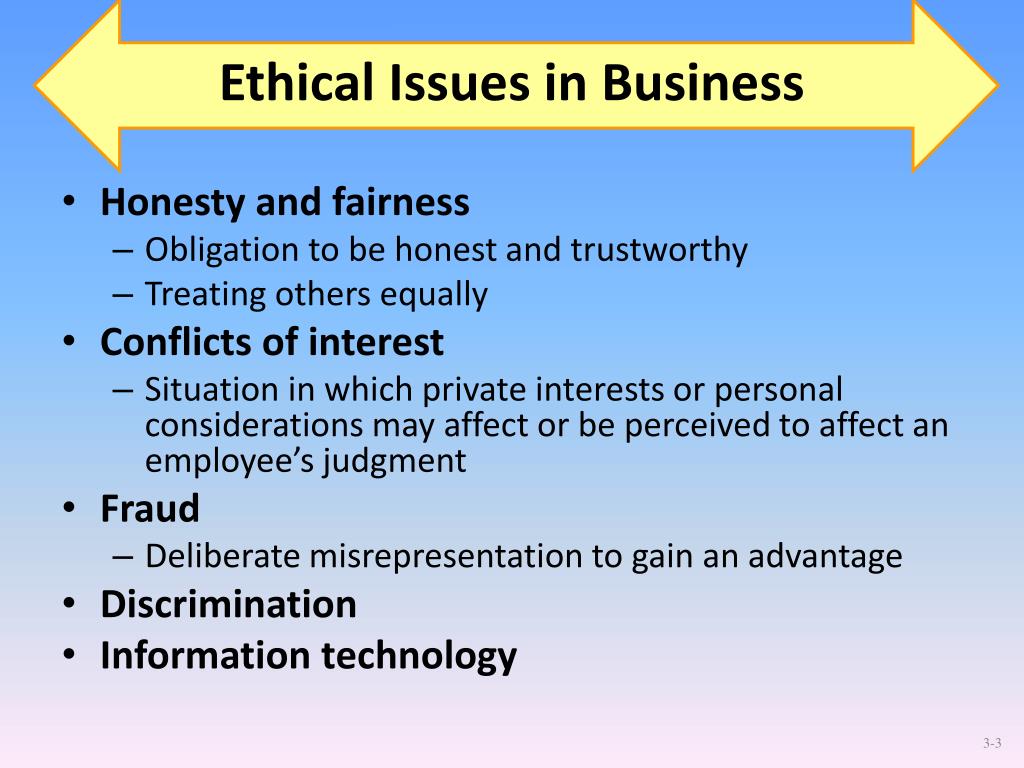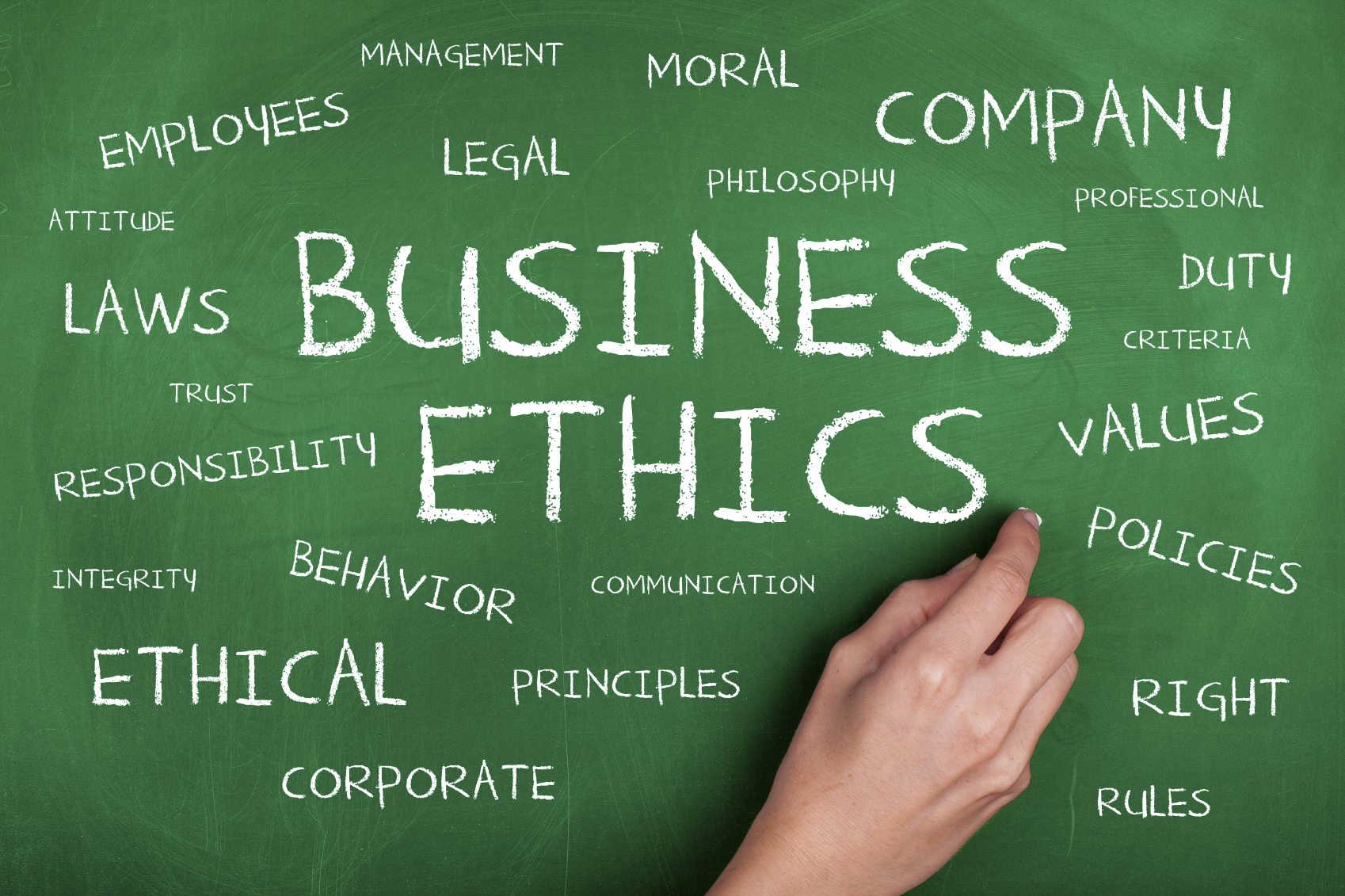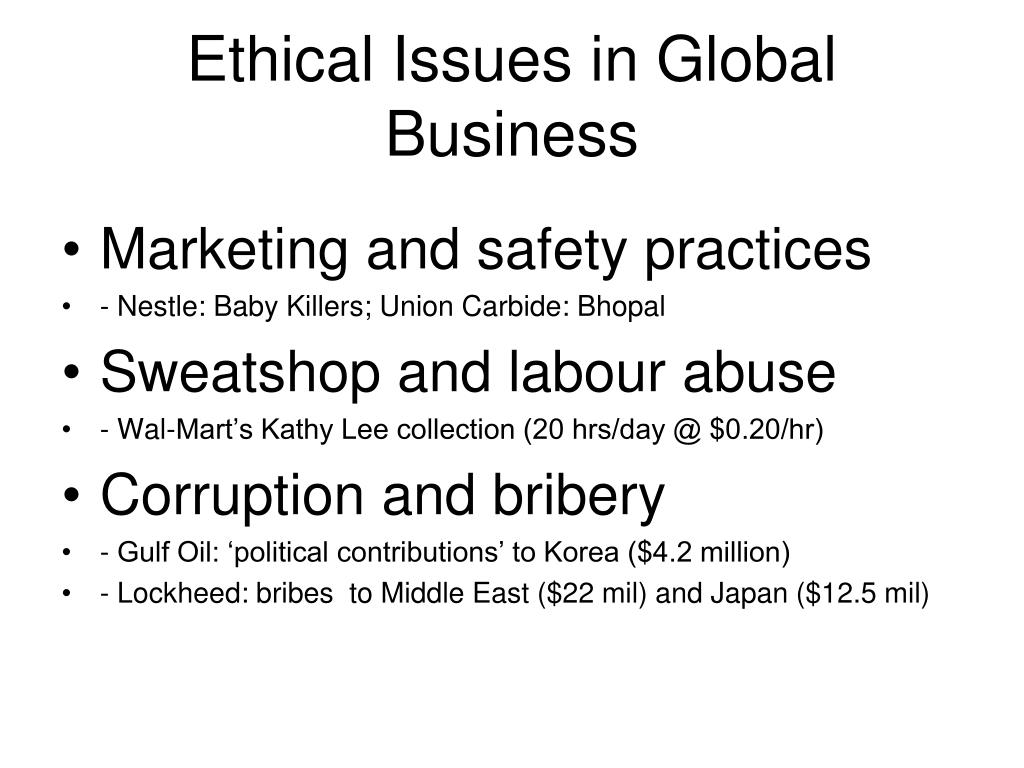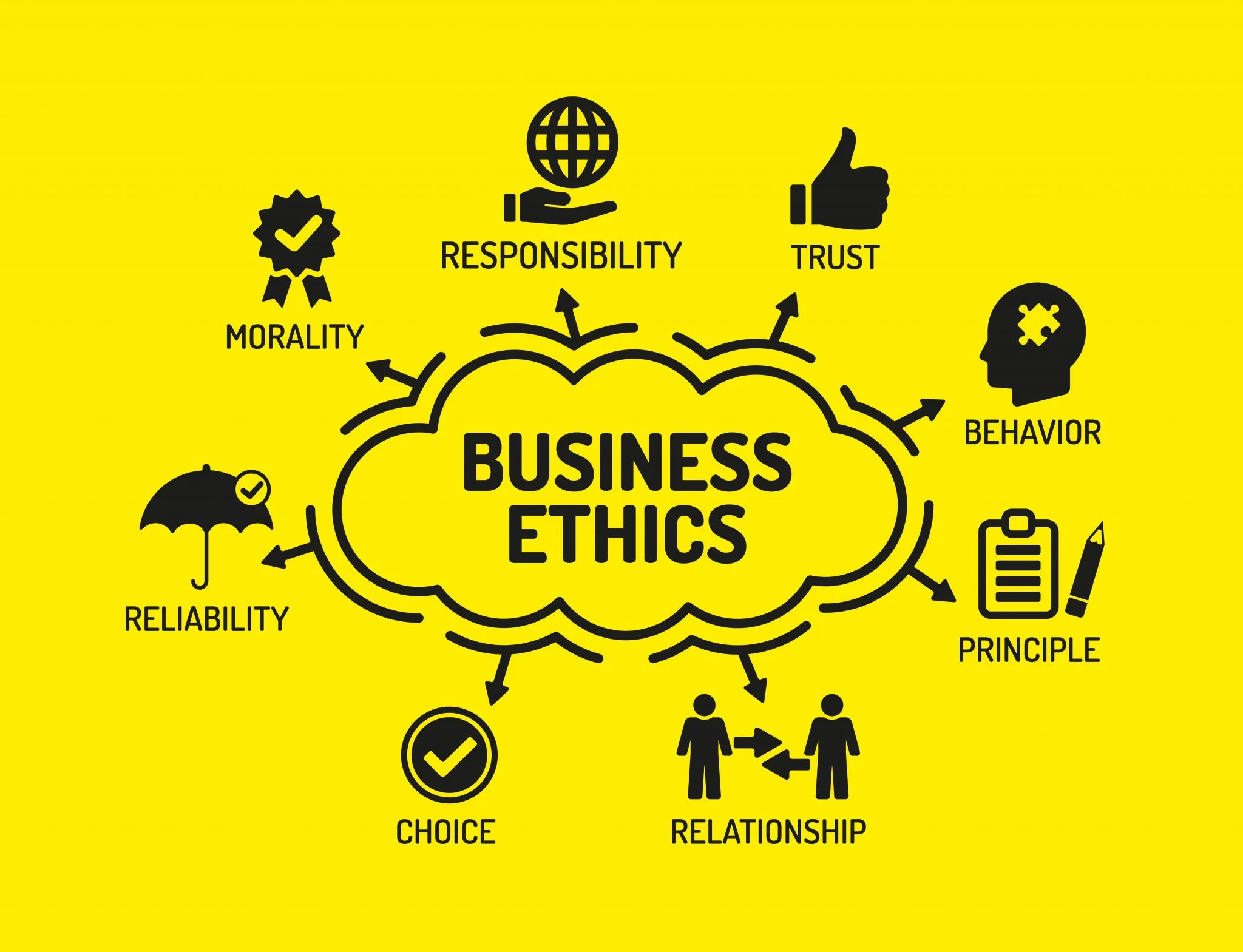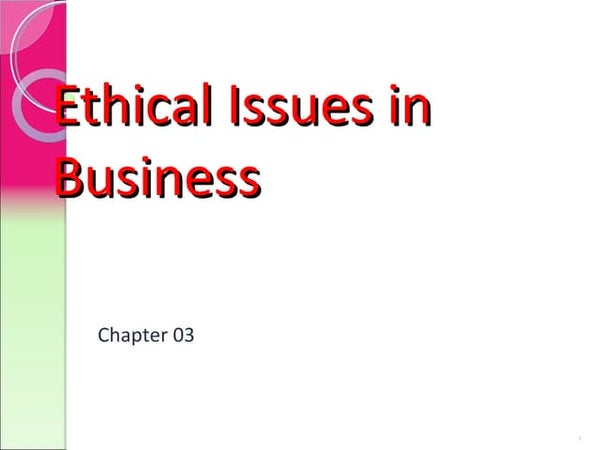Ethical Issues In The Business World

The business world, a landscape driven by profit and innovation, is increasingly facing scrutiny over its ethical practices. From concerns about data privacy to environmental responsibility and fair labor standards, a growing chorus of stakeholders – consumers, investors, and employees alike – are demanding greater accountability and transparency. This heightened awareness is forcing companies to reassess their core values and operational procedures, prompting a critical dialogue about what constitutes ethical conduct in the 21st century.
Ethical lapses in business erode public trust, damage brand reputation, and can lead to significant legal and financial repercussions. The long-term sustainability of any organization depends on its ability to navigate complex ethical dilemmas and uphold a commitment to integrity.
Key Ethical Challenges Facing Businesses
A myriad of ethical challenges plague the modern business world. Several issues are especially prominent and demand immediate attention.
Data Privacy and Security
The proliferation of data has created immense opportunities for businesses, but also immense ethical responsibilities. Companies are entrusted with vast amounts of personal information, requiring robust security measures and transparent data handling practices. Data breaches and misuse of personal data can have devastating consequences for individuals, leading to identity theft, financial loss, and emotional distress.
The General Data Protection Regulation (GDPR) in Europe and similar regulations worldwide have raised the bar for data protection, forcing businesses to prioritize data privacy and obtain explicit consent for data collection and usage. According to a 2023 report by the Ponemon Institute, the average cost of a data breach reached a record high of $4.45 million, underscoring the financial risk associated with inadequate data security.
Environmental Sustainability
Climate change and environmental degradation are pressing global issues, and businesses are increasingly being held accountable for their environmental impact. Consumers are demanding eco-friendly products and services, and investors are incorporating environmental, social, and governance (ESG) factors into their investment decisions. The pressure is on for companies to reduce their carbon footprint, conserve resources, and adopt sustainable business practices.
Greenwashing, the practice of exaggerating or misrepresenting a company's environmental credentials, has become a major concern. Regulatory bodies are cracking down on misleading environmental claims and holding companies accountable for genuine sustainability efforts. "We are seeing a significant increase in consumer demand for sustainable products," states a 2024 report from NielsenIQ, "and businesses that fail to adapt risk losing market share."
Fair Labor Practices
Ensuring fair labor practices throughout the supply chain is a fundamental ethical imperative. Companies must address issues such as child labor, forced labor, and unsafe working conditions in their global operations. Consumers are increasingly aware of these issues and are demanding that companies take responsibility for the ethical treatment of workers throughout their supply chains.
The International Labour Organization (ILO) estimates that nearly 28 million people are in forced labor worldwide. Companies are under pressure to conduct thorough due diligence, implement robust monitoring systems, and ensure that their suppliers adhere to ethical labor standards.
Conflicts of Interest
Conflicts of interest can arise when a person's personal interests conflict with their professional obligations. These situations can compromise objectivity and lead to biased decision-making. Companies must have clear policies in place to identify, disclose, and manage conflicts of interest.
"A conflict of interest undermines trust and can erode the integrity of an organization," said Dr. Anya Sharma, a professor of business ethics at Harvard Business School.
The Path Forward
Addressing ethical issues in business requires a multi-faceted approach. Companies must prioritize ethical leadership, foster a culture of integrity, and implement robust compliance programs. Employees should be empowered to speak up about ethical concerns without fear of retaliation.
Transparency and accountability are also crucial. Companies should be transparent about their ethical policies and practices, and they should be held accountable for their actions. Stakeholder engagement is essential for identifying and addressing ethical concerns. By engaging with employees, customers, investors, and other stakeholders, companies can gain valuable insights and build trust.
Ultimately, ethical business practices are not just a matter of compliance; they are a competitive advantage. Companies that prioritize ethics are more likely to attract and retain top talent, build strong relationships with customers, and achieve long-term success.


